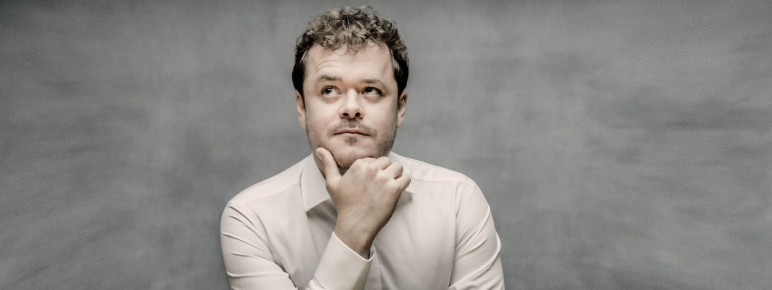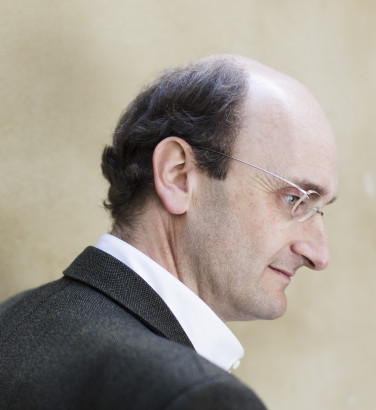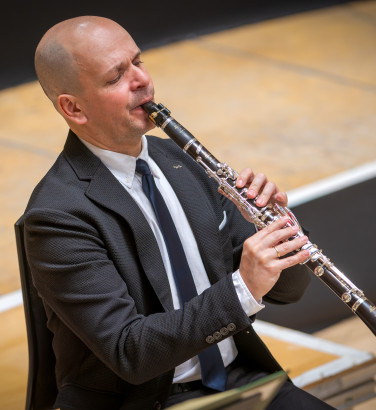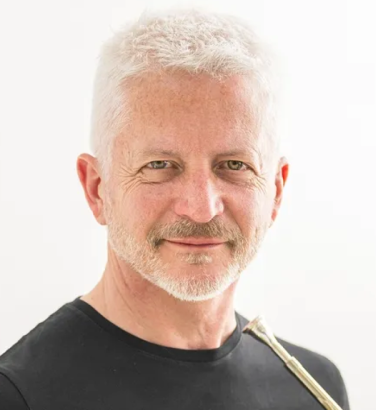
Benjamin Grosvenor on Mendelssohn's piano music: "the first concerto is a fine example of his effortless craftsmanship"
30 Oct 2023
News Story
Benjamin Grosvenor has established such a fine career since coming to prominence in BBC Young Musician in 2004 that it's easy to forget this was only 19 years ago. With countless awards to his name (among them a Diapason d'Or de l'Année for his recording of the Chopin piano concertos with the RSNO in 2020), he is frequently listed among the very finest of British pianists of any generation, a fact borne out by his much-anticipated solo recital at the Queen Elizabeth Hall in London earlier this month.
We are very grateful to Benjamin for agreeing to an interview ahead of his appearances with the Orchestra and Maxim Emelyanychev in November 2023, at which he will perform Mendelssohn's Piano Concerto No 1.
You have an impressive standing with Scottish audiences, especially knowing that you were up against Nicola Benedetti in the 2004 BBC Young Musician final. What do you remember of that night?
It was a long time ago, but it was a very memorable occasion, particularly as it was my first time playing with a professional orchestra. I remember that being an eye-opening experience that inspired me to continue along the path towards being a musician. I will always have an immense fondness for the cities of Scotland because of it. The last rounds of the competitions were held in both Glasgow and Edinburgh, and my first tour with an orchestra after the competition took me around the country with the Scottish Ensemble.
Mendelssohn and Chopin were very close contemporaries. How would you say their piano music compares?
Close contemporaries yes, but one could argue writing in a different musical era somehow ... While Chopin is a true ‘Romantic’, who dedicated his entire life to writing almost exclusively for the piano, Mendelssohn is a ‘Classical-Romantic’, a master of many forms, though perhaps more grounded in tradition. The first piano concerto is a fine example of Mendelssohn’s effortless craftsmanship. There is sumptuous and beautiful chamber writing here: particularly in the second movement. It is a concerto with tremendous energy and perfect balance. The first movement is full of Sturm und Drang, and the virtuosic roller-coaster of a finale is full of wit and fun, and is a thrill for any pianist – it sits under the hands wonderfully and is extremely satisfying to play!
Mendelssohn’s generosity and discovery was a precious gift to the next generation of composers.
Considering the wealth of music written for the piano in the 19th century, Mendelssohn’s is often overlooked. What do the likes of Schumann, Brahms and Liszt owe to his example?
Mendelssohn’s devotion to and championing of the ‘forgotten’ JS Bach shaped his path as a composer and some might argue this obsession to bring Bach’s music to a wider audience limited his own creativity in later life, after his extraordinarily precocious musical youth (he sadly only lived until the age of 38). Mendelssohn’s beautiful short series of lyric piano works ‘Songs without words’, as exquisite as they are, for example, took over 16 years to complete. For me, some of his most fascinating (but fairly unknown) piano works are his preludes and fugues, where he takes this very historical form and applies to it the textures and keyboard techniques of his era in an ingenious way.
Aside from his own music, Mendelssohn’s generosity and discovery was a precious gift to the next generation of composers - to Brahms in particular, but to Schumann and Liszt too. Saving the genius of Bach’s counterpoint from languishing into obscurity allowed those after him to develop more complex and harmonically inventive ideas - relieving them of the classical structure as the focus turned to one of expression of emotion and individualism - allowing the beauty and nuance of their musical ideas a framework to shine all the brighter.
You’re fast becoming something of a regular with the SCO and Maxim Emelyanychev. How would you describe your relationship?
I find working with Maxim and the Orchestra incredibly inspiring. The concerts have been some of the most chamber-music-like experiences I’ve had with an orchestra. Maxim and the SCO feel as one, but then as a concerto partner Maxim is a fireball of energy himself, spontaneous and in the moment, and each concert feels as if it has its own breath of life.
Is there any repertoire you would love to explore with them?
I’d love to do all the Beethoven concerti at some point! Or perhaps Brahms?
Related Stories
![]()
Andrew Manze: "I've always loved Viennese waltzes and polkas"
1 December 2025
Our Principal Guest Conductor is really looking forward to conducting our Viennese New Year concerts!![]()
Maximiliano Martín: "A friend said 'Gnarly Buttons would suit you very well'"
10 November 2025
Ahead of his performance of John Adams' Gnarly Buttons, we spoke to our Principal Clarinet about performing as soloist with the Orchestra.![]()
Quickfire Questions with Kenneth Henderson
7 November 2025
Get to know our new Principal Horn!


